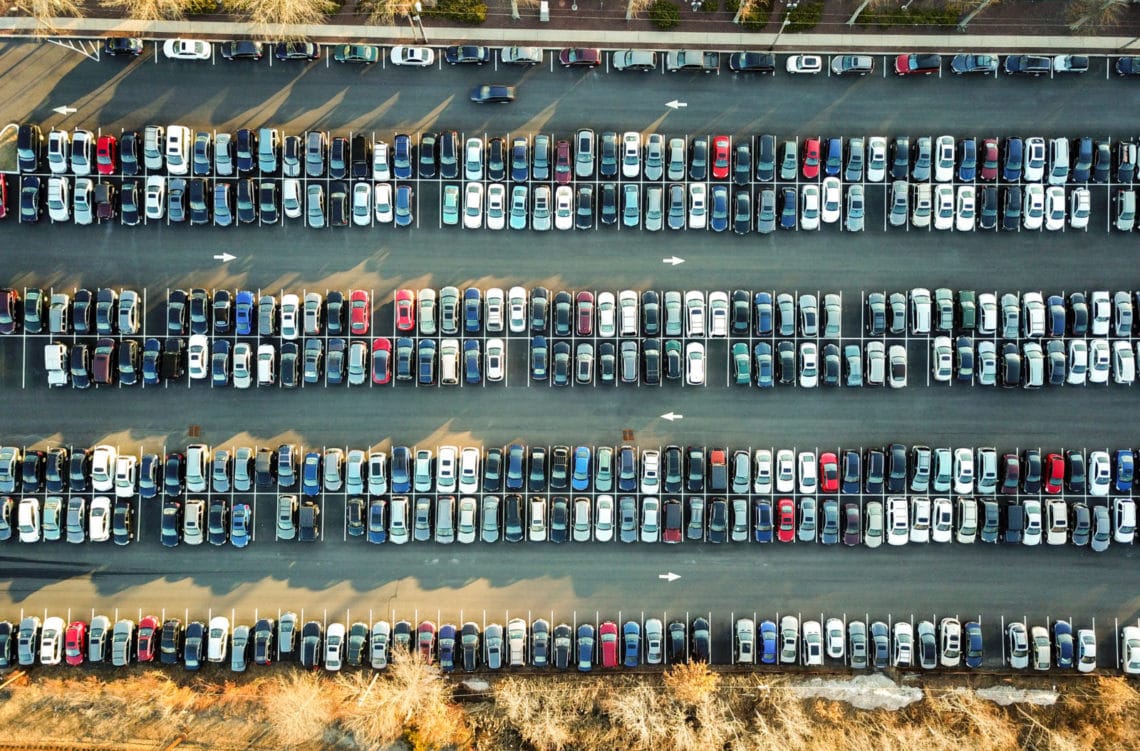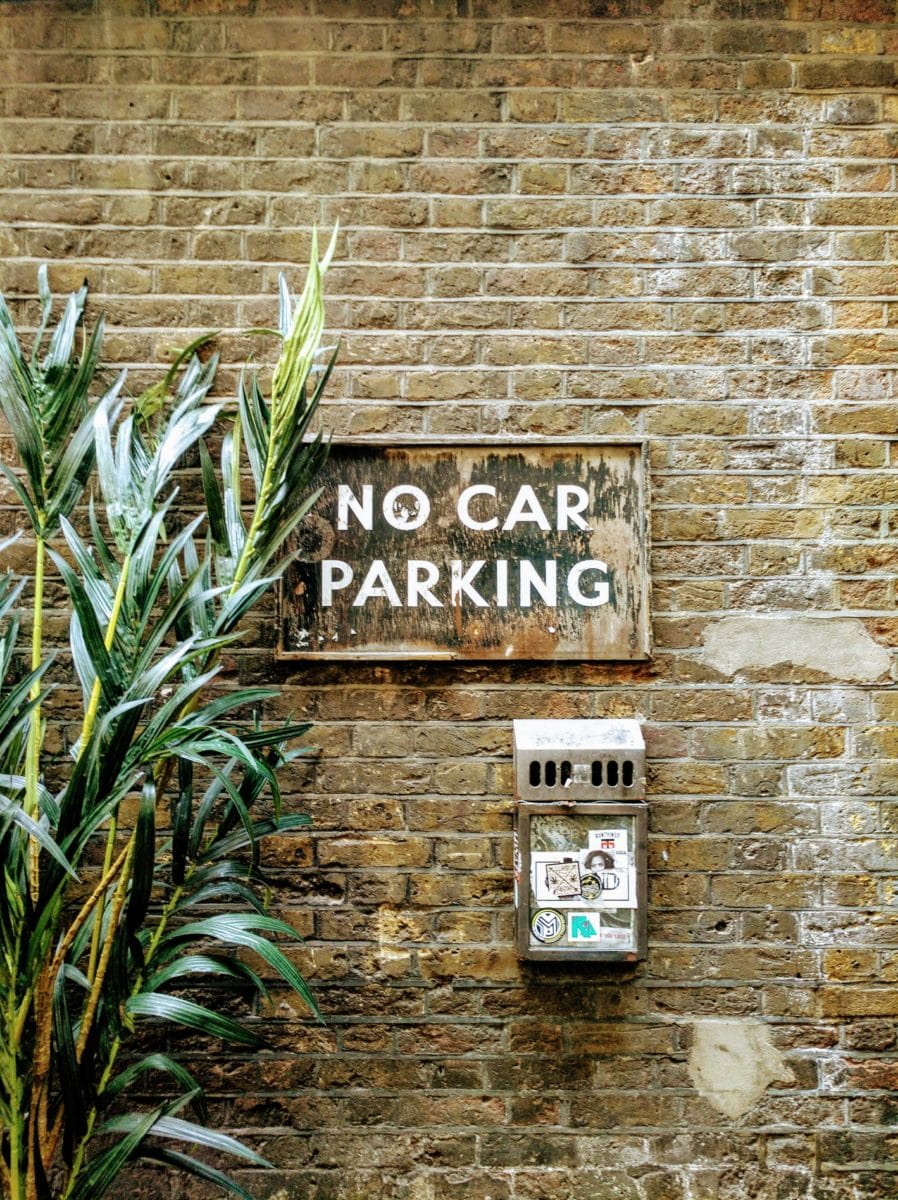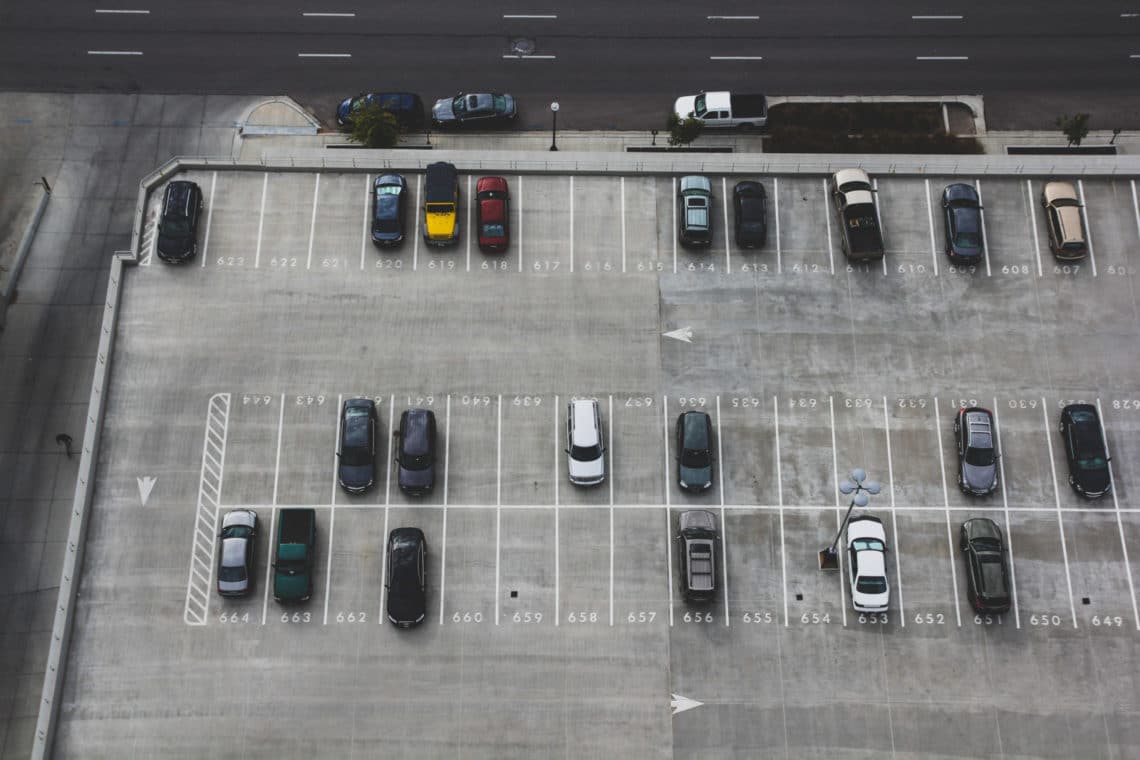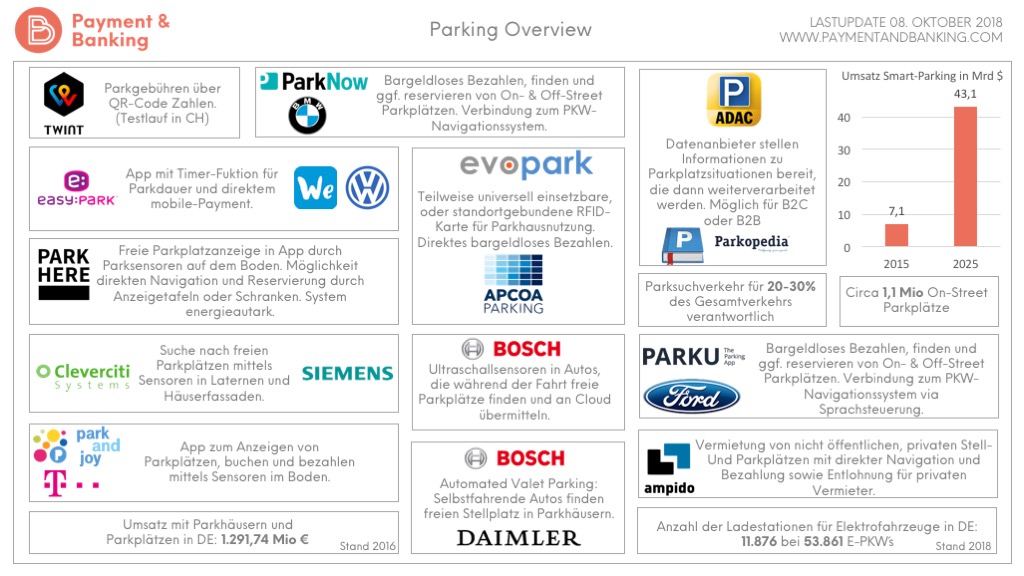Will parking now become smart?
When people deal with the organized standstill of passenger cars, it sounds terribly boring at first, but what all actually is linked to parking and how these people and companies play a decisive role in shaping our future, because they enjoy parking and thus also do something for our environment we show today in a further offshoot our Mobility series.
The future of parking is diverse:
Every year drivers spend an average of 55 hours looking for parking space in European cities. Even though there are often still parking spaces available – finding them is one challenge, manoeuvring the car into and out of the gap undamaged, the other: 65 percent of customers therefore want a car that can park and unpark on its own. Modern assistance systems, intelligent networking of vehicles and infrastructure and clever parking services are the future. In addition to car drivers, the environment and cities will also benefit from less search traffic and more efficient use of existing parking spaces.
There is support from clever companies both on-boar and offboard and in every parking phase, from the searching to the actual parking process and retrieval of the car. Queues at payment machines will also soon be in the past.
Great examples come from San Francisco and London, which show the potential of flexible utilisation and pricing of urban parking space. At the end of the day, the two topics are interrelated, so that one can assume that parking and car park management will change in the future, considerably. The large operators of multi-storey car parks expect no less than that the sector will be reorganised in the coming years. The reason for this is likely to be the ne “players” who address the end customer directly with customer-oriented digital offers, especially with apps. Similar to the taxi industry, where new players such a “May Taxi” have rolled up the market, it is expected that when it comes to parking it will also be important to occupy the digital checkpoint to the customer. If this is successful, there will be a huge competitive advantage: Data and information about customer behaviour can be generated, on the basis customer-specific offers can be tailored. So far, the industry knows nothing about its customers. Consequently, there are hardly any bonus systems or measure for targeted customer loyalty.
But the parking industry has at least already discovered the end customer, even though this is or will be the biggest challenge for them.

The revolution in parking
In the foreseeable future, cars will not only have to be driven, but also stabled and parked. Statistically, cars are parked for 23 hours a day. However, most innovations restrain themselves to the driving time. One hears about more economical engines, new gears and intelligent assistance systems. Far less interesting seems to be, what happens during the time when the vehicle is parked and not moving. Parking is not exactly considered sexy. Nevertheless, there are some indications that this attitude could change soon. In fact, the parking process has the potential to revolutionize our ideas about how to deal with high-quality surfaces in urban space. This is especially true in densely populated areas, where space is scarce and increasingly scarce. This is why the “hotspot” of parking can be found in urban car parks and parking garages. However, the changes will also have an impact on rural regions and smaller cities, where parking is manageable and often free of charge. What they all have in common is the first-class location of the parking space, the design and perception of which, however, is far from being geared to its significance as a first-class public space.
The digitization of parking
Car manufactures have been selling integrated mobility for some time now, including parking. In fact, all premium manufacturers are working on concepts to make parking easier. The manufacturers have recognized that in times when vehicles are becoming more and more visually and technically alike, increasing the convenience of vehicle operation leads to significant competitive advantages. Will the buyer of a premium vehicle in future still buy a parking ticket, or will a flat line be offered for urban parking when buying a car, which also includes electricity for refuelling electric vehicles?
With the “ParkNow” project, BMW has launched a parking app which supports customers in finding free parking spaces in on-and-off street parking and digitizing the payment process. Although no information is available on hot the system works, it is likely that such on-street systems will also use mobility data sent from the vehicles. An algorithm calculates the probability of finding a parking space in a certain area on the basis of current traffic volumes. And what mobility services will vehicle manufacturers offer to customers who will soon be unable to drive into some cities with their diesel models? We don´t know yet. What is certain, however, is that in the foreseeable future proprietary systems will come onto the market that will help drivers to find a parking space and pay for it. Today, many vehicles already have the necessary technology on board. For example, car camera systems can detect whether a parking space is available on the roadside while driving. This information is compared with the information from the navigation system and sent to a database via the SIM cards installed in the vehicle. As a premium service, the drivers then receive this information in real time in the navigation system and can find specific parking spaces.

Sensor-supported parking space management in conjunction with electronic payment systems is a major topic. The idea is impressively simple: people who drive into the city want to know where free parking spaces are and only want to pay for the time they use the parking space. Young people in particular transfer their consumer behaviour to parking: The service must be available immediately with maximum transparency! Cities, on the other hand, want to know how much parking space is used in order to introduce flexible traffic control systems. Both are possible if parking sensors are installed whose data is evaluated in real time and made available to the customer. Of course, the good old parking ticket will then have to give way to smart phone payment.
Value chain multi-storey car park
The issue of simplicity and convenience have been neglected in parking for decades. The fact that a parking process is more like an imposition than a modern service process, however, is recognized by more and more innovative companies as an opportunity to implement customer-friendly solutions. This is realized by cost-effective technologies, the use of which enables seamless information flows and considerably more customer-friendly parking processes.
Parking space can not only be found more easily, but also the payment and settlement process can also be considerably simplified and automated. Several companies already offer parking services in the form of apps. The prerequisite for the use of these services is that the parking provider and the app service provider enter into a cooperation. For example, the technical infrastructure for recognizing the vehicle is integrated into the barriers system of the multi-storey car park via an RFID chip. The driver can drive into and out of the car park without having to pay at the machine in the car park. Billing takes place at the end of the month by the app provider, who in turn cooperates with a billing service provider, From the parking provider´s perspective, this means that new service providers will establish themselves between his company and the end customers, who will use smart applications and assistance services to make contact with the end customer and thus occupy the so-called “digital Checkpoint”.
One of the leading parking app providers, evopark GmbH and the bicycle logistics service provider veloCARRIER are planning a research project aimed at making parking spaces in inner city multi storey car parks accessible for alternative forms of use. To this end, it is to be tested in Stuttgart´s city centre whether and how areas in multi-storey car parks can be used as intermediate storage areas for micro logistic systems.

Conclusion
Parking will change, and new technologies will be a major driver of these changes. Above all, municipal operators of parking areas and multi-storey car parks are well advised to keep an eye on these in order to put the parking area management, which is still often deficit today, on an economically viable basis in the medium term. We have no doubt that this is also possible for smaller cities, even if the management of parking areas in is always an issue of local political explosiveness.
It is likely to be of fundamental importance to generate more data and information on the use and management of parking areas in the future. Only those who know how the areas are used can define the value of parking and are in a position to generate innovative operating concepts and business models that also involve third parties such as app service providers or retailers. In the beginning there is data and the ability to turn data into evaluable information. This in turn requires a professional approach to the subject area.
Sources:
- https://de.statista.com/statistik/daten/studie/874212/umfrage/prognose-fuer-den-globalen-umsatz-von-new-mobility-dienste-nach-art/
- https://www.moneytoday.ch/news/parkgebuehren-twint-steht-an-der-parkuhr-am-start/
- https://easypark.de
- https://paymentandbanking.com//park-here.eu/
- https://www.evopark.de/
- https://www.cleverciti.com/de/loesungen/autofahrer/
- https://www.apcoa.de/news/neuigkeiten/article/apcoa-parking-revolutioniert-das-parken-in-ganz-deutschland/
- https://www.wiwo.de/technologie/mobilitaet/smart-parking-wie-apps-und-sensoren-bei-der-parkplatzsuche-helfen/22604550.html
- https://www.parkandjoy.de/blog-details/die-technik-hinter-park-and-joy
- https://www.bosch-mobility-solutions.de/de/highlights/automatisierte-mobilit%C3%A4t/automated-valet-parking/
- https://www.volkswagen-we.com/de/Park.html#/Funktionsweise
- https://de.park-now.com/
- https://de.statista.com/statistik/daten/studie/266273/umfrage/umsatz-mit-dem-betrieb-von-parkhaeusern-und-parkplaetzen/
- https://de.statista.com/statistik/daten/studie/460234/umfrage/ladestationen-fuer-elektroautos-in-deutschland-monatlich/
- https://www.ampido.com/?gclid=Cj0KCQjwgOzdBRDlARIsAJ6_HNlOzYbEhb7kgud99u6Skz9s41BUsKhRdPuohpk7Xp1cB3ARKSGSR4waAl89EALw_wcB
- https://parku.com/de/#
- https://www.adac.de/produkte/apps/parkinfo/
- https://www.parkopedia.de/about-us/





